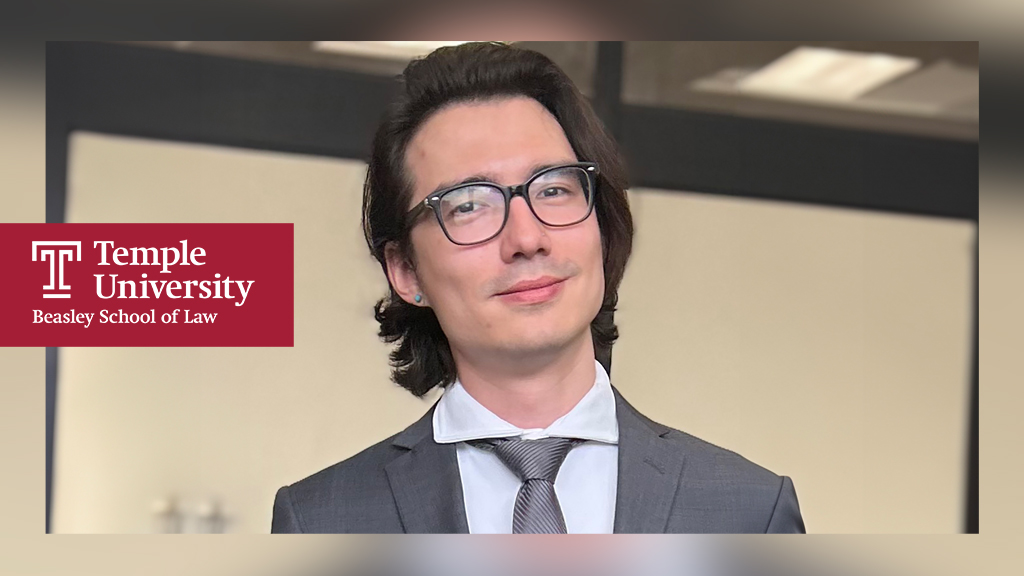
Motivation in becoming a lawyer
Hometown: Kansas City, MO
Education: University of Arkansas
Job: Mangano-Prudenti Fellow, Assistant Appellate Court Attorney, New York State Supreme Court, Appellate Division, Second Department
Program: Full-Time Day
I want to be an educator. When I started law school, I didn’t have a great grasp of what I wanted to do. My motivation for being an attorney changed depending on the day. This was the case until I read a quote in Professor Rangel-Medina’s Criminal Procedure 1 course that used the phrase “the science of law” to describe how complex and inaccessible the law is. That’s when it clicked. Just like science, the law affects people whether they understand it or not. If a person doesn’t know their rights under the law, then if they violate the law or are taken advantage of by somebody trying to exploit the law, they can end up vulnerable. Access to legal information equals access to safety in these situations. My theory is that if I spread legal education, then my clients will be safer.
Participation and leadership
I was fortunate because my experiences complemented each other so well! I was a Staff Editor and then Lead Research Editor for the Temple Law Review, a member of Temple Law’s Moot Court team, and a Research Assistant for Professor Bachar. As a Lead Research Editor for Law Review, I had the opportunity to manage my own workload and to learn how to coordinate multiple articles and people. Having a dedicated space to dive into the nuances of writing, to get to know my Staff Editors and other Board members, and to help the Staff Editors was rewarding. Being a member of Temple Law’s Moot Court team complemented my experience in Law Review, allowing me to put my research, writing, and time management skills to the test. Adding to this, working for Professor Bachar helped me refine these skills further. She showed me how to research independently. She also exposed me to the finer points of developing an academic argument, and her novel research was fascinating to contribute to.
Faculty influence
I cannot give enough praise to Professor Rangel-Medina, Professor Hurwitz, and Professor Daniels. These three have had such an impact on my life that I’d like to acknowledge them. Professor Rangel-Medina encouraged me to conduct my own research, to propose a solution to a legal issue that is near and dear to my heart, and to take charge of my law school education. Law school would not have been as fulfilling as it was without her. Professor Hurwitz became a mentor and friend throughout my 2L & 3L years, and I appreciated his guidance! My first job out of law school is one that I’m thrilled to have, and his input was crucial to making that possible. Professor Daniels brought his holistic view of the law into the classroom, and his insights introduced me to a new way of looking at my legal career. My thought going into law school was that the law is all a zero-sum game about trials and lawsuits. But, Professor Daniels made it a point to show how discussions and education can help our clients find solutions that they otherwise wouldn’t have. I hope to incorporate this into my career.
Networking advice
My networking advice is this: Networking isn’t a problem law students must figure out – it’s the solution to learning how to navigate life as a law student. If you approach it with a positive mindset, it isn’t scary. My mentor in undergrad once told me that there are no such things as “problems.” Rather, there are situations that require a solution. I ran into plenty of situations in law school that I didn’t have a good solution for. From understanding difficult class assignments to delivering my first opening statement to balancing competing job offers, every time I was in a tough situation, somebody was able to help me out. Help came from a multitude of sources. Emailing alumni who do the work I’m considering, talking to mentors through student clubs, asking my professors and Career Services for advice, and attending school-sponsored events were all free and easy introductions to networking. Temple Law fosters an Owls-help-Owls community. If you take the first step of asking for help, Owls really will move mountains if that’s what it takes.
What do you wish you knew before starting law school?
I wish I knew how important it was to be well-rounded before I started law school. I entered 1L believing that law school would be a crucible where one misstep could have me falling off and failing out. I read books on how to do law school “right,” and I read step-by-step guides on how to get through law school. While I loved doing the activities I did, they came at a cost. I pushed myself academically beyond my limits, and when something eventually had to give, I heavily suppressed my mental and emotional needs until 3L year. The solution that finally came to me was that I needed to cut myself some slack, and I needed to let myself develop holistically. I’ve learned that people will naturally try to find balance for maintaining our mental health needs, our emotional needs, our physical needs, etc. Once I stopped focusing on the rigid step-by-step guides, everything else fell into place. My mental, emotional, spiritual, and physical health all began to improve, and (shockingly) so did my grades. Law school isn’t a time to slack off, but it’s also not sustainable nor necessary to grind (and grind and grind) until there’s nothing left. If you let yourself naturally find your healthy balance, most things get better.
